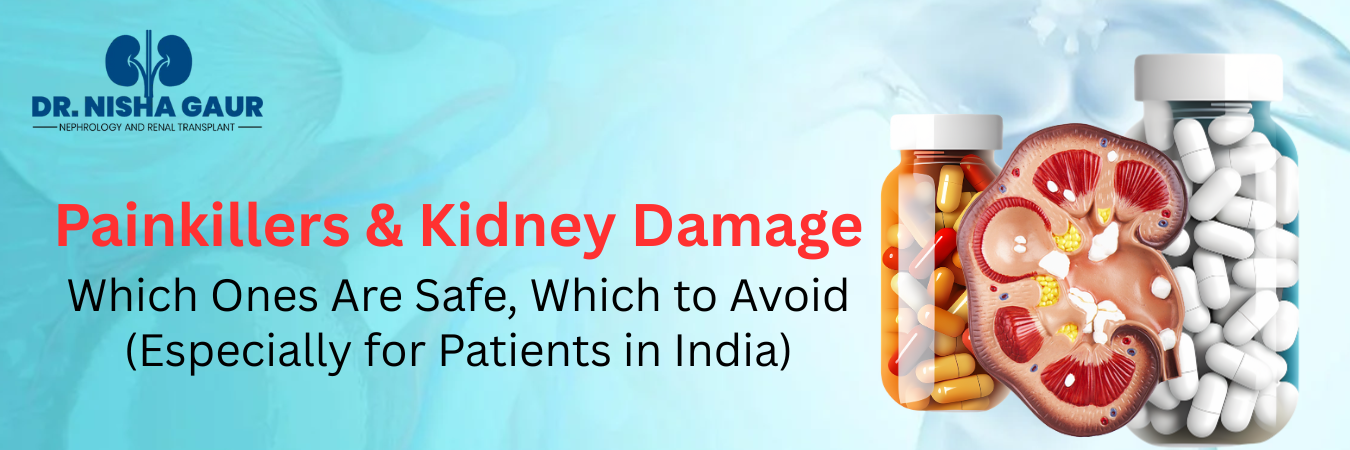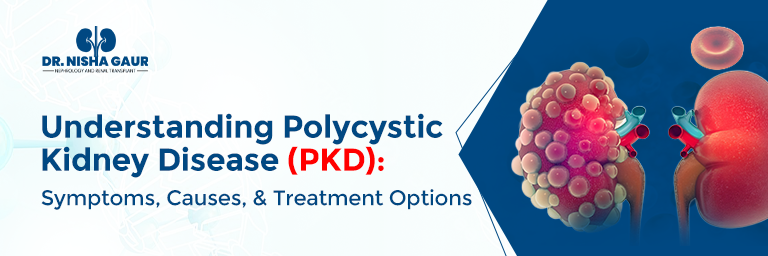Introduction
In India, it’s common to reach for a painkiller whenever a headache, backache, or joint pain strikes. Medicines like diclofenac, ibuprofen, and paracetamol are available easily in every medical store, and in India many people use them without any doctor/medical advice.
But did you know that some of these painkillers can damage your kidneys if used regularly, especially in people who already have chronic kidney disease (CKD), diabetes, or high blood pressure?
This blog will help you to know about it:
- How painkillers affect your kidneys
- Which medicines safe, and which ones to avoid
- Special notes for Indian patients (including Ayurvedic remedies)
- When you should consult a nephrologist before taking any medicine
How the Kidneys Work — and Why Painkillers Can Be Risky
Your kidneys are your body’s natural filters. And they:
- Remove body waste products
- Balance fluids and electrolytes in our body
- Control blood pressure
- Support red blood cell production
Painkillers, especially NSAIDs (Non-Steroidal Anti-Inflammatory Drugs), can reduce blood flow to the kidneys. Over time, this increases the risk of:
- Acute Kidney Injury (AKI): sudden loss of kidney function
- Chronic Kidney Disease (CKD): gradual decline in kidney function
- Worsening existing kidney problems
That’s why it’s critical to know which medicines are safe for your kidneys.
Common Painkillers Mostly Used in India
Here are the main categories of painkillers that people in India often use:
- NSAIDs (Non-Steroidal Anti-Inflammatory Drugs):
- Examples: Diclofenac, Ibuprofen, Naproxen, Aspirin
- Easily available in India without prescription
- Often used for joint pain, fever, or injury
- Paracetamol (Acetaminophen):
- Commonly used for fever, mild pain, headache
- Considered safer for kidneys if taken within recommended dose
- Opioids:
- Examples: Tramadol, Codeine, Morphine
- Used only under medical supervision for severe pain
- Require strict monitoring
- Combination Medicines:
- Cold and flu tablets that combine multiple ingredients (paracetamol + NSAIDs + caffeine)
- Risky because people don’t realize they’re consuming extra NSAIDs
Painkillers That Can Harm Your Kidneys
The biggest concern for kidney health is NSAIDs.
- Diclofenac & Ibuprofen: Very popular in India, but long-term or high-dose use can reduce kidney blood flow.
- Aspirin (high doses): Can also increase kidney stress.
- Self-medication: Many patients keep taking these without realizing they’re worsening kidney disease.
⚠️ Important: If you already have CKD, high blood pressure, or diabetes, you should avoid NSAIDs unless your doctor specifically allows them.
Safer Alternatives for Pain Relief
If you have kidney problems, here are safer approaches:
- Paracetamol (Acetaminophen):
- Generally considered the safest option for pain relief.
- Must be taken in the correct dose (avoid overdose).
- Opioids (under medical guidance):
- For severe pain, a doctor may prescribe opioids.
- Dose adjustment is required for kidney patients.
- Non-Medicine Methods:
- Physiotherapy
- Yoga and stretching
- Heat or cold compress
- Stress management techniques
Herbal & Ayurvedic Remedies — Not Always Safe
Many Indians turn to herbal or Ayurvedic remedies for pain relief. While some may be helpful, others can be toxic to the kidneys.
- Herbs containing aristolochic acid have been linked to kidney failure.
- Some unregulated herbal powders may contain heavy metals.
- High-dose remedies like certain Triphala mixtures can stress the kidneys.
✅ Always consult a nephrologist before trying herbal pain relief if you have kidney problems.
How to Check if a Medicine is Safe for Your Kidneys
Here are some practical steps:
- Read the label carefully – check for NSAIDs like diclofenac, ibuprofen, or naproxen.
- Don’t mix medicines – avoid taking multiple painkillers together.
- Stay hydrated – dehydration worsens kidney risk.
- Always inform your doctor about any supplements or herbal remedies you take.
When to See a Nephrologist
You should consult a nephrologist before using painkillers if you:
- Have diabetes, high BP, or CKD
- Have a family history of kidney disease
- Experience warning signs like swelling, foamy urine, fatigue, or reduced urine output
Early consultation can prevent serious kidney damage.
Frequently Asked Questions (FAQ)
Q1: Is paracetamol safe for kidney patients?
Yes, paracetamol is generally safe in the recommended dose. Avoid overdosing.
Q2: Can I take diclofenac if I have mild kidney disease?
It is not recommended without doctor supervision. Diclofenac can worsen kidney function.
Q3: Are Ayurvedic painkillers safe?
Not always. Some herbs and powders may harm the kidneys. Always check with your doctor.
Q4: Which painkiller is safest for kidney patients in India?
Paracetamol is usually the safest choice, but only at the correct dose.
Conclusion
Painkillers are a quick fix for pain — but for your kidneys, the wrong choice can be dangerous. In India, where self-medication is common, NSAIDs like diclofenac and ibuprofen are often misused, leading to kidney damage.
The safest option for most kidney patients is paracetamol in correct doses, while NSAIDs should be avoided unless your nephrologist approves. Herbal remedies should also be used with caution.
👉 If you are in Jaipur or nearby and have concerns about kidney health, consult a nephrologist today for safe and personalized advice.



